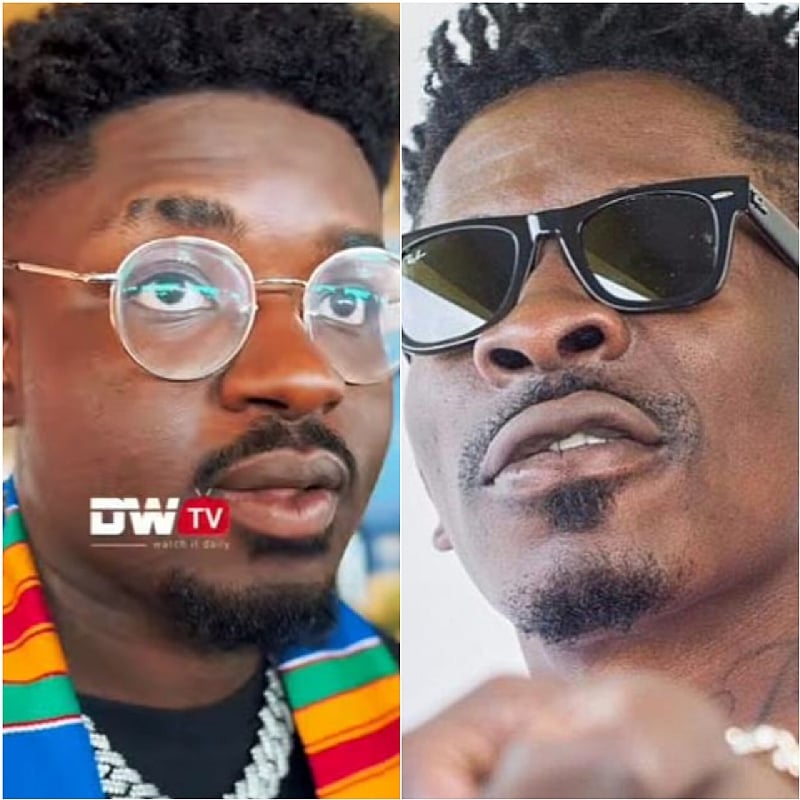Ghana’s vibrant music scene has been steadily gaining international recognition, attracting the attention of artists and music enthusiasts worldwide. The country’s unique blend of traditional rhythms and modern influences has cultivated a distinctive sound that resonates with a diverse audience. This rising global interest is evident in the admiration expressed by American rapper Priince K for several Ghanaian artists, showcasing the potential for cross-cultural collaborations and the growing appreciation of Ghanaian music on the international stage. Priince K’s interest underscores the increasing influence of Ghanaian music in the global music landscape and highlights the potential for further collaborations between Ghanaian and international artists.
Priince K has specifically mentioned several Ghanaian artists as potential collaborators, a list that includes King Promise, Sarkodie, Black Sherif, Oseikrom Sikanii, and the legendary Daddy Lumba. Each artist brings a unique flavor to the Ghanaian music scene. King Promise is known for his smooth, melodic vocals and captivating stage presence. Sarkodie, a prominent figure in African hip-hop, is celebrated for his intricate wordplay and lyrical dexterity. Black Sherif’s raw talent and emotionally charged lyrics have quickly propelled him to stardom, capturing the attention of both local and international audiences. Oseikrom Sikanii represents the burgeoning Asakaa drill scene, bringing a fresh and energetic sound to the Ghanaian music landscape. Finally, Daddy Lumba, a veteran in the industry, is a revered figure whose contributions have shaped the trajectory of Ghanaian highlife music.
The diversity in the artists Priince K admires reflects the richness and breadth of Ghanaian music. From the smooth melodies of highlife to the energetic rhythms of Afrobeat and the hard-hitting beats of drill, Ghanaian music encompasses a wide range of genres and styles. This eclectic mix is a testament to the country’s rich musical heritage and the ongoing evolution of its sound. Priince K’s interest in collaborating with these artists highlights the potential for these diverse sounds to reach a wider audience, further solidifying Ghana’s position as a significant contributor to the global music landscape.
However, Priince K’s admiration for Ghanaian artists doesn’t extend to everyone. Despite acknowledging Shatta Wale’s talent and influence, he has explicitly stated that he wouldn’t consider a collaboration with him. This decision stems from Shatta Wale’s controversial reputation, marked by frequent public feuds and contentious interactions with fellow artists within the Ghanaian music industry. While Shatta Wale has undoubtedly contributed to the popularity of Ghanaian music with his high-energy performances and hit songs, his controversial actions have also created divisions within the industry and impacted his public image.
Shatta Wale’s controversial persona presents a complex dynamic within the Ghanaian music scene. On one hand, his outspoken nature and bold personality have garnered him a significant following. His music often reflects the struggles and aspirations of everyday Ghanaians, contributing to his popularity and influence. On the other hand, his frequent clashes with other artists and his tendency to engage in public disputes have created a polarizing effect, leading to both ardent supporters and staunch critics. This dichotomy underscores the challenges that artists face when navigating the complexities of public image and the potential consequences of controversial behavior.
Priince K’s decision to exclude Shatta Wale from his list of potential collaborators underscores the importance of considering an artist’s reputation and public image alongside their musical talent. While talent and artistry are undoubtedly crucial factors in collaborations, an artist’s conduct and professional relationships can also significantly impact the success and reception of joint projects. This highlights the delicate balance that artists must maintain between expressing their individuality and maintaining a professional image that fosters collaboration and positive relationships within the industry. The situation with Shatta Wale serves as a case study in how controversy can affect an artist’s opportunities and the perceptions of their work, even in the face of undeniable talent.














